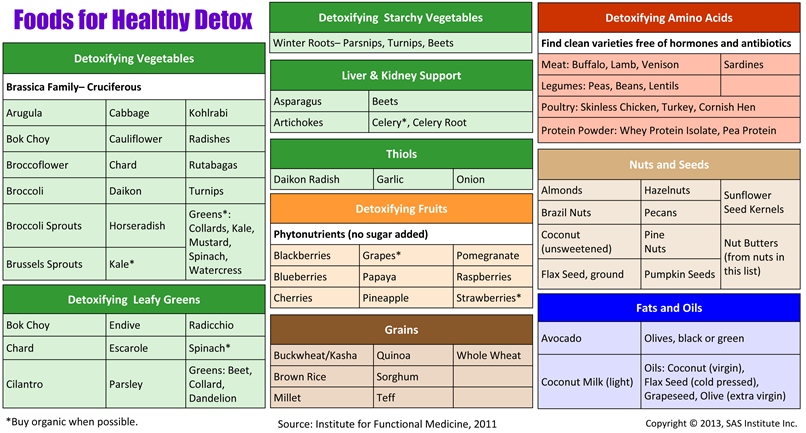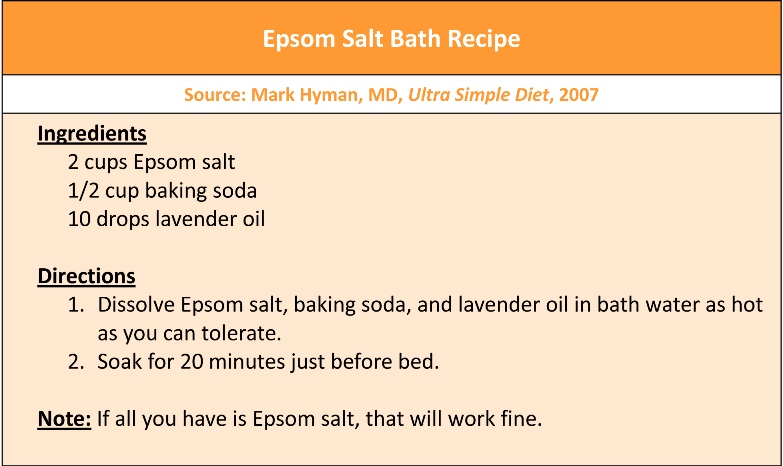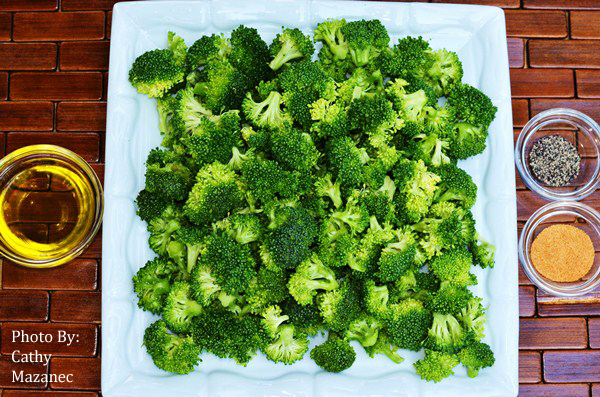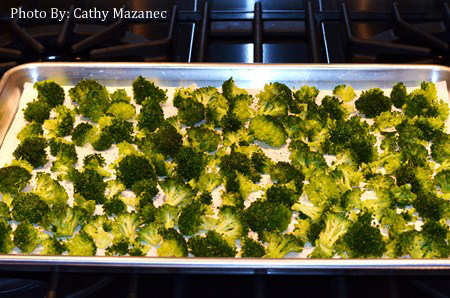Ways We Excrete Toxins
You learned in the previous Chews Strategically post, Foods for Natural Detox, that certain foods provide important nutrients that assist the liver in transforming toxins so they can be excreted from the body. After the toxins are transformed into water soluble substances they are excreted through 3 routes:
1) Urine (Kidneys)
2) Feces/Stool (Colon)
3) Sweat (Skin)
The right foods and key nutrients are critical to adequate detoxification. Several other diet and lifestyle habits can also contribute. Plan these habits into your day to insure you are doing what your body needs for efficient detoxification.
Daily Detoxification Tips
Diet Tips
- Eat foods daily that provide nutrients that support the detoxification pathways in your liver, kidneys and colon.
a) Organic leafy greens: 1–2 cups a day.
b) Cruciferous vegetables (broccoli, cauliflower, cabbage, Brussels sprouts, etc.): 1–2 cups a day.
c) Sulfur foods: eggs, onions and garlic (a few cloves a day).
d) Other brightly colored detox vegetables and fruits:2–3 cups a day.See Detox foods here. Click chart below for a printer-friendly version.

- Drink lots of water (8 – 12 cups) daily. Read More.
- Eat high quality plant or lean animal proteins at every meal. Important Note: Some “Detox Plans” on the internet recommend eating or drinking only vegetables and fruits for detox. This is poor advice! Healthy detoxification requires amino acids, the building blocks of protein. Read More.
- Enjoy 1 – 2 cups of green or black teas daily. Read More.
- Eat adequate calories. Some internet “Detox Plans” recommend low calorie juice fasts for detoxing. This is poor advice! Adequate calories are necessary for your liver to perform all of its detoxification functions. Remember, toxins are stored in our fat cells. If you lose a large amount of fat quickly, you may dump a lot of toxins into your blood stream. If you are not detoxing well due to insufficient calories, your weight loss plan could make you sick. Read More.
Need some help with what to eat?
Click here for 7 days of delicious detox menus and recipes.
Lifestyle Tips
1. Sweat Regularly. Read More.
a) Perform sweaty exercises regularly (preferably daily).
b) Enjoy a visit to a steam room a few times a week.
c) Soak in an Epsom salt bath 2-3 times a week or nightly.
Click here for a printable version of Daily Detox Tips.
Sources:
Institute for Functional Medicine: Textbook of Functional Medicine, July 2006.
Institute for Functional Medicine: Clinical Nutrition: A Functional Approach, 2nd Edition, 2004.
Hyman, Mark, MD, The Ultra Mind Solution, 2009.
Dietitians in Integrative and Functional Medicine, The Integrative RD, Spring 2012
Roasted Broccoli
Makes 8 Servings
Ingredients
6 large broccoli crowns (about 6 cups florets)
3 Tbsp extra virgin olive oil
½ tsp Homemade Lawry's Seasoned Salt
¼ tsp fresh ground black pepper
Directions
-
Wash florets thoroughly and let air dry.
-
Season with Lawry's Seasoned Salt and pepper.
Nutrition Information per Serving: Calories: 62, Total Fat: 5gm, Saturated Fat: 0.5gm, Trans Fat: 0gm, Cholesterol: 0mg, Carbs: 3gm, Fiber: 2gm, Protein: 1.5gm, Sodium: 109mg
Click here for a printer-friendly version of this recipe.







